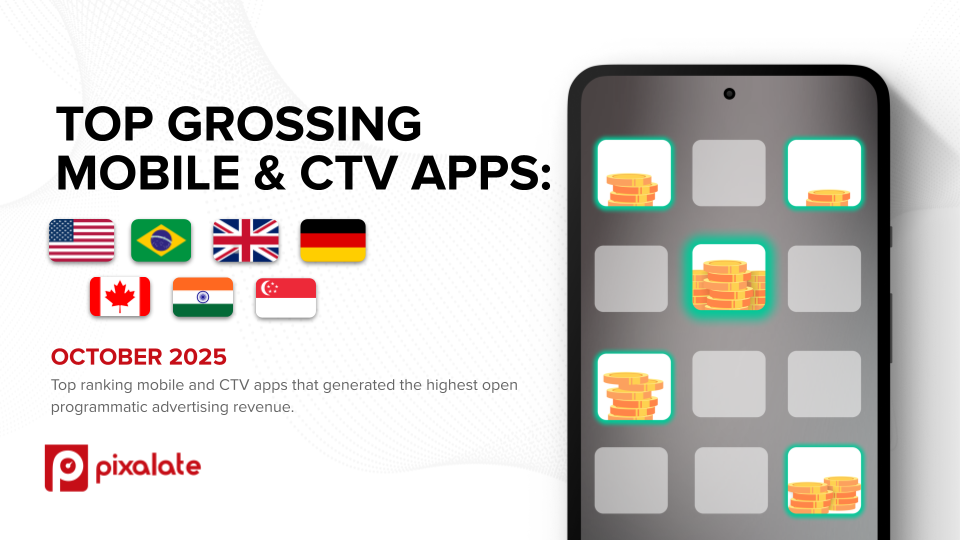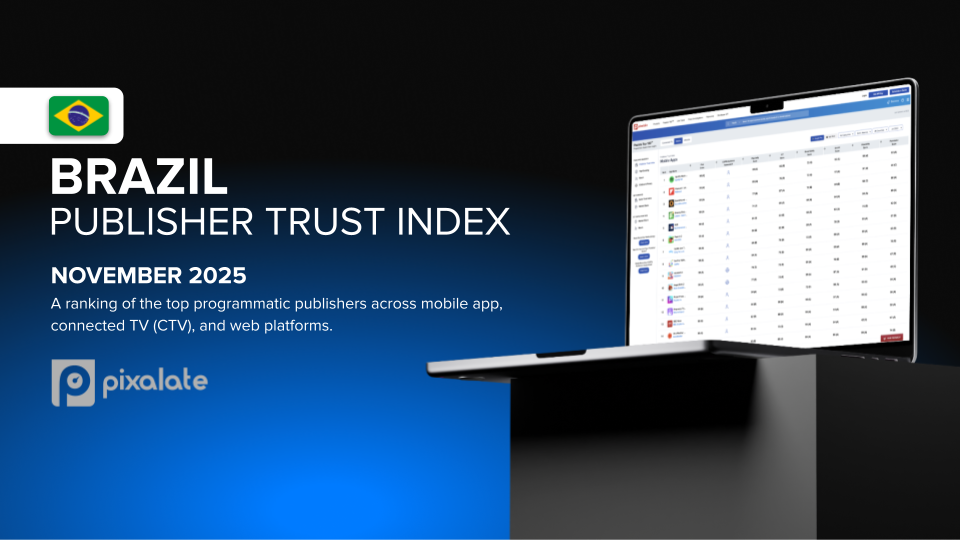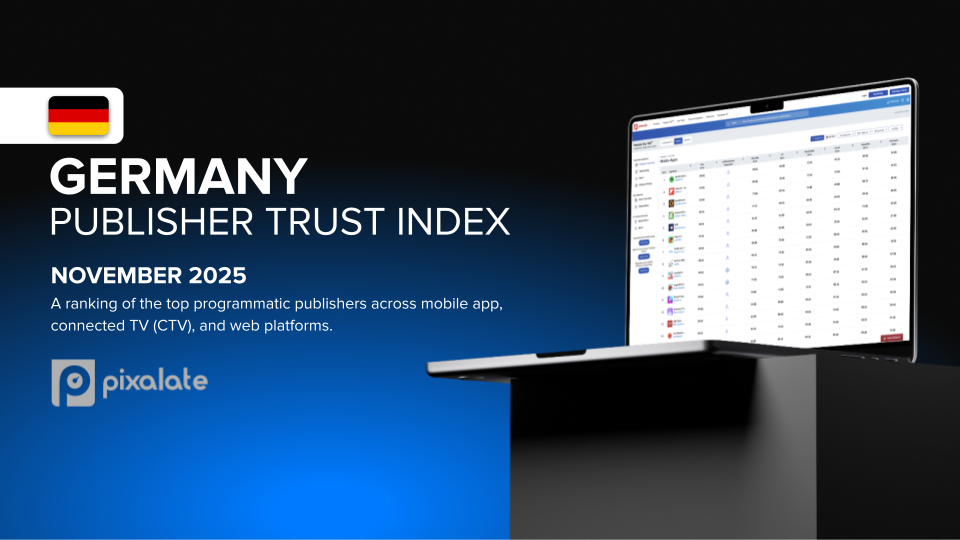According to Pixalate’s research, LG Smart TV delivered the fifth most open programmatic CTV ads globally, behind Roku (37%), Amazon Fire TV (17%), Samsung Smart TV (12%), and Apple TV (11%) in the global CTV device market share
LONDON, September 26, 2025 -- Pixalate, the leading global platform for ad fraud protection, privacy, and compliance analytics, introduces the LG Smart TV CTV Trends Report Q2 2025. The report comprehensively analyzes the state of open programmatic (Connected TV) CTV advertising within the LG Smart TV Store in Q2 2025 across key global ad economies.
The report provides a detailed analysis of CTV trends related to LG Smart TV, including estimated device market share by global region (using ad sales as a proxy), top grossing apps in LG Smart TV’s tvOS app store, and invalid traffic (IVT, including ad fraud) within the open programmatic CTV ad marketplace.
Q2 2025 Global LG Smart TV Store CTV Trends Report Key Findings
- LG Smart TV’s estimated global CTV device market share is 7% in Q2 2025, a 40% increase from Q1 2025
- LG Smart TV delivered the fifth most open programmatic CTV ads globally, behind Roku (37%), Amazon Fire TV (17%), Samsung Smart TV (12%), and Apple TV (11%) in the global CTV device market share
- LG Smart TVs are most popular in Europe, the Middle East, and Asia (EMEA), where it held an estimated 14% CTV device market share
- 15% IVT rate, including ad fraud, on apps in the LG Smart TV app store, which is lower than Samsung Smart TV (39%) and Apple TV apps (21%)
- 32% of LG Smart TV apps use app-ads.txt and support open programmatic advertising as of Q2 2025.
The Top Grossing Q2 2025 LG Smart TV Apps, based on estimated open programmatic advertising in August 2025:
- LG Channels ($1.6M in estimated open programmatic ad revenue)
- Tubi: Free Movies & TV ($848K)
- Plex ($292K)
- Hulu ($265K)
- Fubo: Watch Live TV & Sports ($257K)
Pixalate’s data science team analyzed programmatic advertising activity across over 4.7K CTV apps and over 23 billion global open programmatic ad transactions in August 2025 to compile this Q2 2025 research.
Explore the findings in the Q2 2025 LG Smart TV CTV Trends Report.

About Pixalate
Pixalate is a global platform specializing in privacy compliance, ad fraud prevention, and digital ad supply chain data intelligence. Founded in 2012, Pixalate is trusted by regulators, data researchers, advertisers, publishers, ad tech platforms, and financial analysts across the Connected TV (CTV), mobile app, and website ecosystems. Pixalate is accredited by the MRC for the detection and filtration of Sophisticated Invalid Traffic (SIVT). pixalate.com
Disclaimer
The content of this press release, and the LG Smart TV CTV Trends Report (the "Report"), reflect Pixalate's opinions with respect to factors that Pixalate believes can be useful to the digital media industry. Any data shared is grounded in Pixalate’s proprietary technology and analytics, which Pixalate is continuously evaluating and updating. Any references to outside sources should not be construed as endorsements. Pixalate’s opinions are just that, opinions, which means that they are neither facts nor guarantees. Pixalate is sharing this data not to impugn the standing or reputation of any entity, person or app, but, instead, to report findings and trends pertaining to programmatic advertising activity across CTV apps in the time period studied. Pixalate does not independently verify third-party information. Per the Media Rating Council (MRC), “‘Invalid Traffic’ is defined generally as traffic that does not meet certain ad serving quality or completeness criteria, or otherwise does not represent legitimate ad traffic that should be included in measurement counts. Among the reasons why ad traffic may be deemed invalid is it is a result of non-human traffic (spiders, bots, etc.), or activity designed to produce fraudulent traffic.” Certain IVT is also sometimes referred to as “ad fraud.” Per the MRC, “'Fraud' is not intended to represent fraud as defined in various laws, statutes and ordinances or as conventionally used in U.S. Court or other legal proceedings, but rather a custom definition strictly for advertising measurement purposes.”







